
Explore the top rated Kenosha drug rehabs with confidence. We've analyzed each of the 25 addiction treatment centers in Kenosha, WI for patient reviews, clinical credentials, transparency, and brand reputation to identify the best rehab programs.
Filter by inpatient, outpatient, detox, health insurance, specialty program and more to quickly find the best drug and alcohol rehab in Kenosha.Our Methodology
Rehab Score
Our Rehab Score is designed to make it easier for you to find the best treatment centers. We combine overall ratings with recent feedback to create a score that reflects a center's quality right now.
.

| Name / Address / Rating | Description | Treatments / Programs / Payment Options | Review / Contact | Images | |
|---|---|---|---|---|---|
Kenosha, WI | They offer supervised medical treatment to safely manage withdrawal symptoms during detoxification, residential care providing long term support for addiction recovery, as well as flexible outpatient addiction therapy allowing patients to live at home while receiving regular treatment. Additional levels of care offered include relapse prevention, r | Programs Payment Options | Melissa is alright.
James
2 months ago
Awesome ppl who actually care about your well being! I’d recommend them to anyone struggling with addiction issues.
Andrew Beltoya
1 year ago
All of the staff are super friendly and their goal is to help you be successful. The PA listens to you carefully and he will suggest and prescribe medication to aid you to reach your goals. The counselor will work with you to set up a plan for your recovery and listens intently to you to help you reach the goals you have set. She has helped me in numerous ways to overcome anxiety issues that were blocking my path. I believe the whole staff have truly saved my life.
Wayne Chapman
1 year ago
| 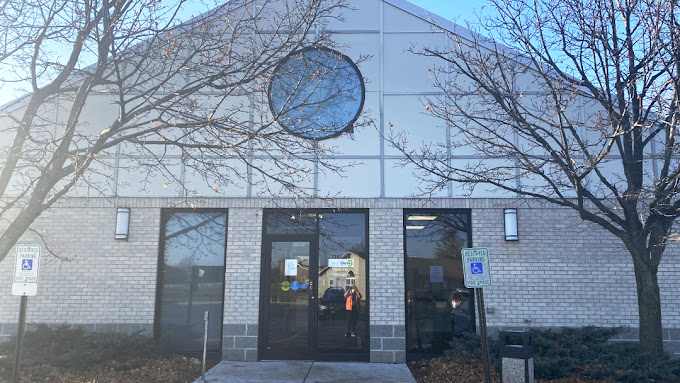
5 5 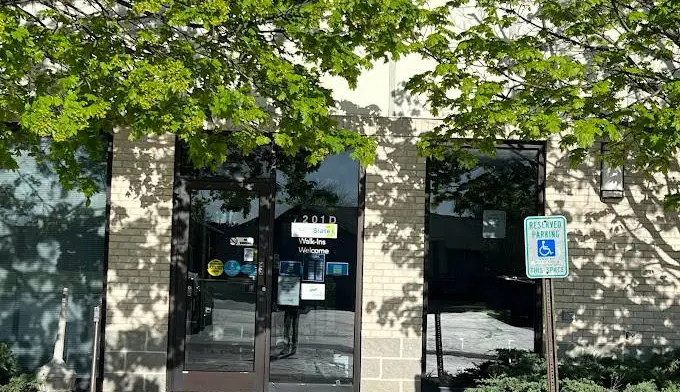
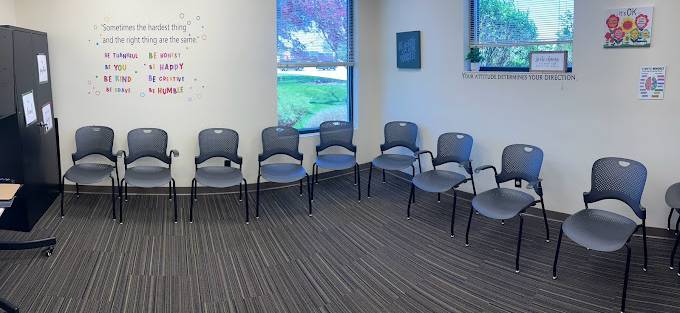
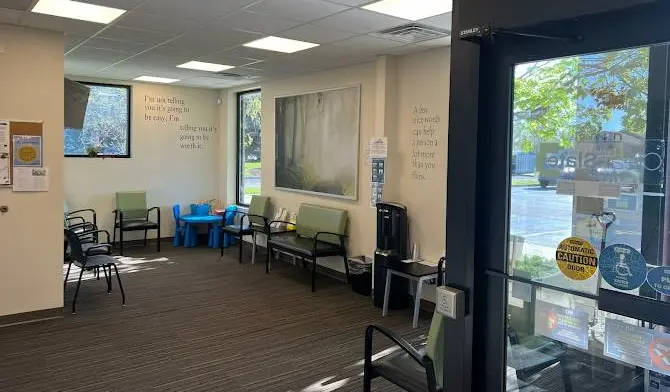
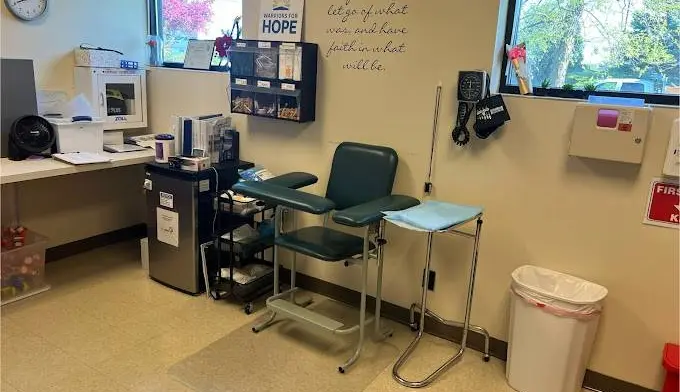
| |
Kenosha, WI | Kenosha Human Development Services (KHDS) is a nonprofit organization that provides a range of mental health, primary care, and social services to members of the community in Kenosha, Wisconsin. The organization has been in operation for over 50 years and also works with local and state government agencies to create a safety net for vulnerable popu | Treatments Programs Payment Options | Thanks to khds my life is becoming so simple and stress free. Yesenia Olivo deserves a 5 star rating herself for the hard work she puts in with me to achieve my goals! KHDS is simply a blessing only created by God.
Yesenia Olivo goes Above and beyond to make sure I am happy, healthy, and successful. Khds is such a an amazing place.
Troy Shesler
4 months ago
Many services to help the underserved. Benefits for children with disabilities. Mental health services for adults. Foster care program. 24 hour crisis line.
Lauri Trapp
8 months ago
Out of public view location... but VERY nice facility!
Phil Kenner
1 year ago
| 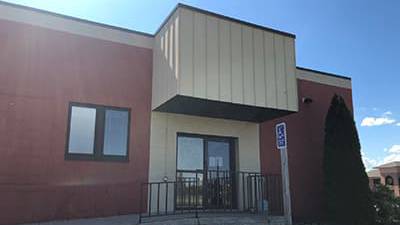
| |
Kenosha, WI | Vivent Health grants people living with HIV a second chance at living a fulfilling and meaningful life. They have facilities spread across multiple locations in Wisconsin including this one in Kenosha. For more than 40 years, they’ve delivered quality and personalized care including testing and prevention, counseling and wraparound services that | Treatments Programs Payment Options | Everyone I encountered at this facility is very professional,caring and work well together as a team should
They treat you like family
When I say Everyone I mean Everyone from the front desk to the specialist all have class!
Joslynn Burke
3 years ago
before and most amazingly during the covid endemic these people actually will help and care, as opposed to giving innane excuses why I should go to great efforts beyond my ability to so that they can sit home doing no work while their dog barks. Phone system sucks though.
jason long
3 years ago
The service is really good! People are attentive and they give you the resources you need, they treat you with respect and honesty. Just on one occasion, I felt discriminated by another person who as assisting the center. I just feel they should filter people who want to visit the center
6 years ago
| ||
Boca Recovery Center – Bloomington Alcohol & Drug RehabAd This is an ad and Boca Recovery Center – Bloomington Alcohol & Drug Rehab is a paid advertiser. Paid advertisers may be listed first in search results. This ad may contain content provided by the advertiser. Rehab.com does not verify ad content or any reviews that are displayed. Learn More Bloomington, IN | The Boca Recovery Center is a luxury alcohol and drug rehab center for adults in Bloomington, Indiana. They specialize in cutting edge addiction treatment provided in a residential setting. One unique part of this alcohol and drug rehab in Indiana is the peaceful, secluded setting. If recovering in a clinical hospital setting doesn’t sound very a | Treatments Programs Payment Options | View Website (930) 203-1400 | Boca Recovery Center – Bloomington Alcohol & Drug Rehab has no reviews yet. Leave a review.
| 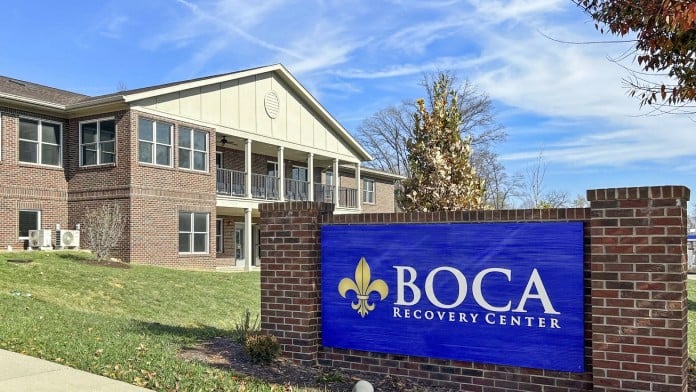
6 6 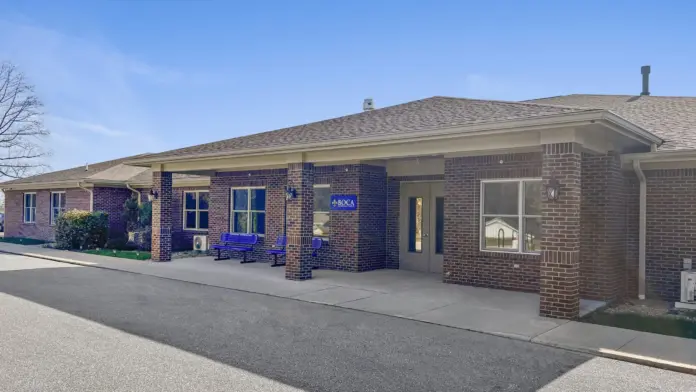
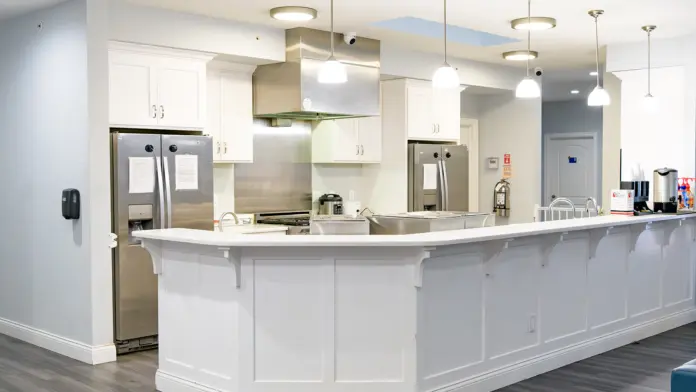
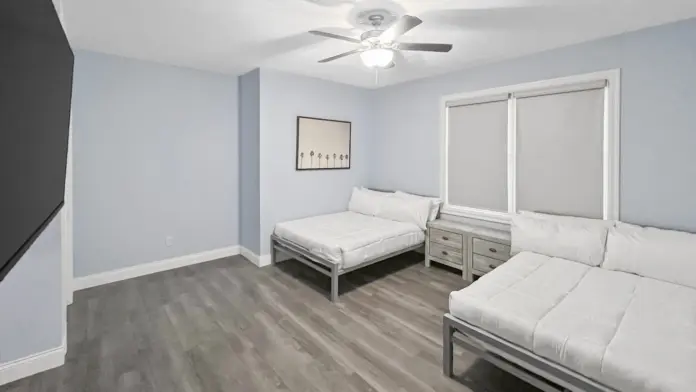
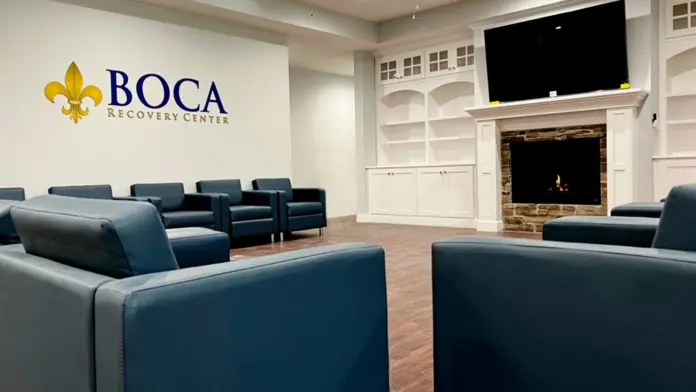
|
Kenosha, WI | Adults living in the Wisconsin city of Kenosha can visit the Captain James A Lovell Federal Health Care Center Kenosha VA Clinic. It’s an outpatient clinic providing primary health care and specialty services like mental health and women’s care for Veterans and their families. They also help TRICARE beneficiaries who have been diagnosed with a | Treatments Programs Payment Options | Best V.A. Clinic connected to best V.A. hospital anywhere!
Cheryl Grey
6 years ago
| 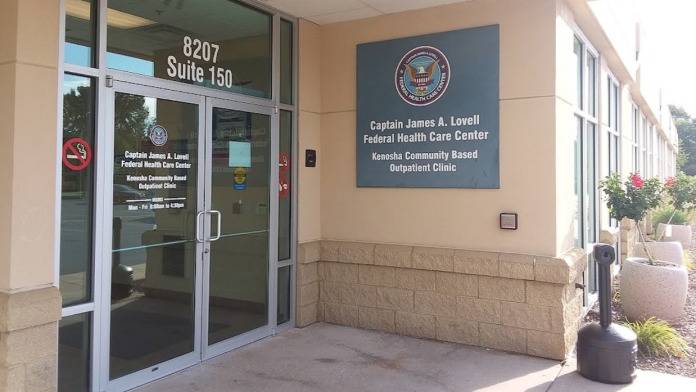
2 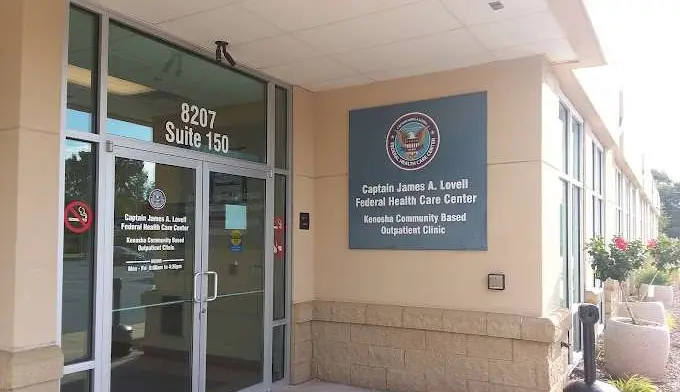
| |
Kenosha, WI | Aalto Enhancement Center in Kenosha, Wisconsin provides outpatient treatment for substance use disorder. We like their calm, inclusive environment and their compassionate, supportive therapists. You can use Medicaid, Medicare, TRICARE, private insurance, or other state and county programs. If you’re uninsured, a sliding scale will be offered to | Treatments Programs Payment Options | Brittany did THE BEST deep tissue massage for me. She was very professional and the massage was very relaxing.
Bri
1 month ago
I love getting my massages at Allto! I have been to all of the ladies and they are all great!
Lisa Benn
3 months ago
⭐⭐⭐⭐⭐
I’ve been a loyal customer at Aalto Enhancement Center for decades, and it’s always been an exceptional experience. The staff is incredibly professional, and the atmosphere is always welcoming and soothing. I frequently book massages and have had the pleasure of working with many massage therapists there but mostly Melissa, Brittany, and Delaney – each of them brings their unique touch, but all provide outstanding service. My husband and I also enjoy regular couples massages, and it’s the perfect way for us to relax and unwind together. Every visit leaves us feeling relaxed, refreshed, and
rejuvenated. I highly recommend Aalto to anyone in need of a top-tier massage experience. Truly a five-star gem!
Rachel Langer
10 months ago
| 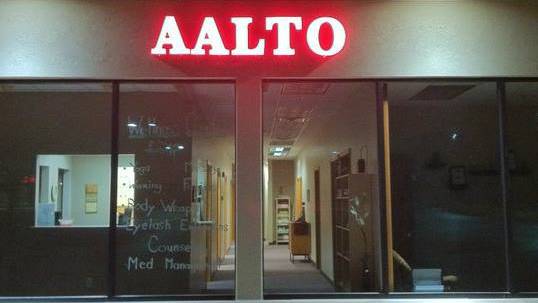
| |
Kenosha, WI | InterConnections, located in Kenosha, Wisconsin is a private alcohol and drug rehab that offers treatment for a variety of substance abuse addictions including alcoholism, co-occurring mental health disorders, and opiate addiction. They offer flexible outpatient addiction therapy allowing patients to live at home while receiving regular treatment. | Treatments Programs Payment Options | Everyone I've delt with at InterConnections has been great. The gentleman at the front desk is very helpful and knowledgeable about insurance.
Kristopher Peters
1 year ago
They really understood veterans issues.
Bob Peterson
1 year ago
We really enjoyed working with the staff at Inter Connections, S.C.
Words do not describe how amazing the people are here. They are Highly professional and we would recommend them to anyone.
BellMedEx Billing
4 years ago
| 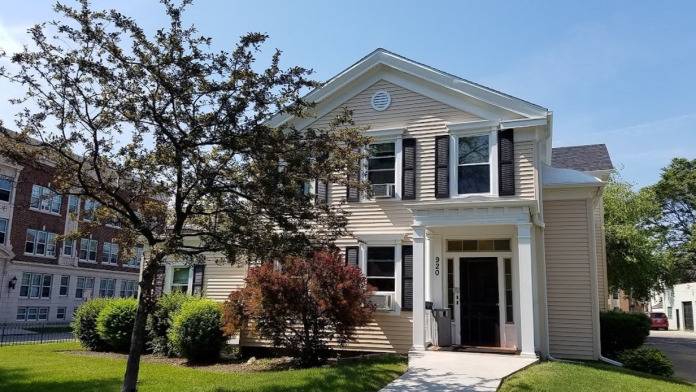
| |
Top Wisconsin Cities | |||||
Kenosha, WI | Oakwood Clinical Associates is a mental health and substance use treatment center in Kenosha, Wisconsin, that provides client centered care to adults and adolescents. They offer a wide range of services designed to support individuals and families through challenging moments. Insurance is accepted including Medicaid. Therapy and Treatment Model Ind | Treatments Payment Options | My therapist was fantastic and helped me quite a bit. Unfortunately she only took Medicaid so I had to switch once I started Medicare. My current therapist is great, mind you. I just had seen the previous therapist for years and that built a lot of trust that is hard to come by. I feel like the office staff is really on top of things and always called me when there was an issue. Good place in my opinion.
Whirrling Menace
1 year ago
Started out with Nyles, very nice but due to some of my issues it was hard to talk to him. Then started seeing Kris, and still see her. Really like her, feel more relaxed talking about my issues. Doing much better with my depression, not as bad. Anxiety is still an issue we're working on.
Been seeing Kris Jerry for 3 years. Come June 1,2023, will be my last time seeing her as she is moving on to doing counseling at her own place in IL.,. June 8th, I will be going back to seeing Nyles again.
Cindy
Cindy Hoch
2 years ago
Office staff is great and Jennifer is an amazing therapist! ☺
Erica Molinaro
4 years ago
| 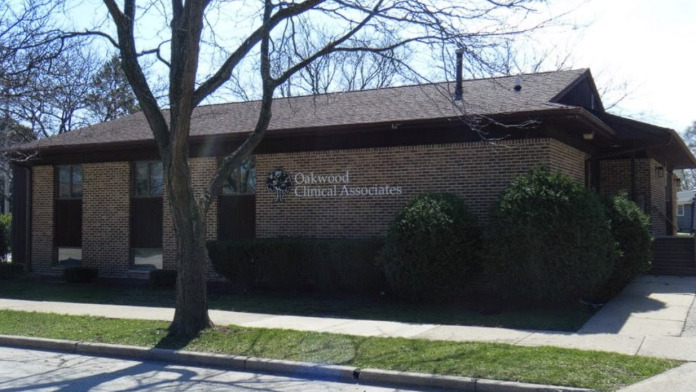
2 
| |
Kenosha, WI | Kenosha Alano Club, located in Kenosha, Wisconsin is a non-profit alcohol and drug rehab that offers treatment for a variety of substance abuse addictions including alcoholism and opiate addiction. They offer flexible outpatient addiction therapy allowing patients to live at home while receiving regular treatment. Additional levels of care offered | Treatments Programs Payment Options | Amazing fellowship! Great beginnings to a new life! Recovery IS possible!
Britnay
2 years ago
Come to your 1st day of your life.
Victor Perez
6 years ago
Excellent place for a meeting.
David J Serrano
8 years ago
| ||
Kenosha, WI | Southport Lighthouse Recovery Club, located in Kenosha, Wisconsin is a non-profit alcohol and drug rehab that offers treatment for a variety of substance abuse addictions including alcoholism and opiate addiction. They offer flexible outpatient addiction therapy allowing patients to live at home while receiving regular treatment. Additional levels | Treatments Programs | SAVED Brother😊
Dennis Knippel
1 year ago
A great community is recovery!
Chris Baratki
3 years ago
Great place if you are checking out recovery groups! I really like the meetings and people in it! Saturday at 6 pm is one of my favs!! Baddass vibez!!💚🔷️💚
Kenny Zzzz
3 years ago
| ||
Boca Recovery Center – Indiana Drug and Alcohol RehabAd This is an ad and Boca Recovery Center – Indiana Drug and Alcohol Rehab is a paid advertiser. Paid advertisers may be listed first in search results. This ad may contain content provided by the advertiser. Rehab.com does not verify ad content or any reviews that are displayed. Learn More Huntington, IN | Boca Recovery Center is a luxury drug treatment facility in Huntington, Indiana. The company started in Florida in 2016 and quickly moved into three additional locations to address substance disorders and co-occurring mental health issues. They accept most major insurances and will check your coverage options days before you enter treatment. Howeve | Treatments Programs Payment Options | View Website (260) 201-2661 | Boca Recovery Center – Indiana Drug and Alcohol Rehab has no reviews yet. Leave a review.
| 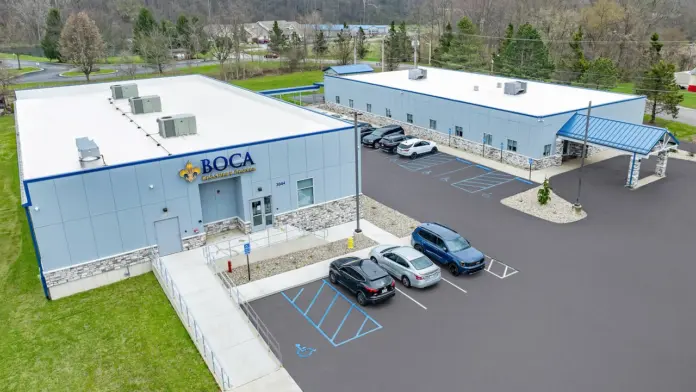
24 24 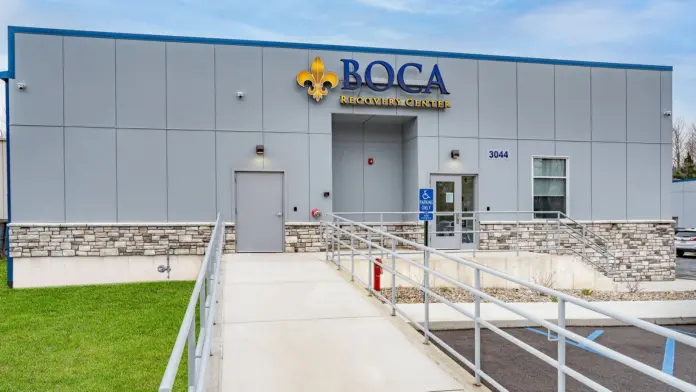
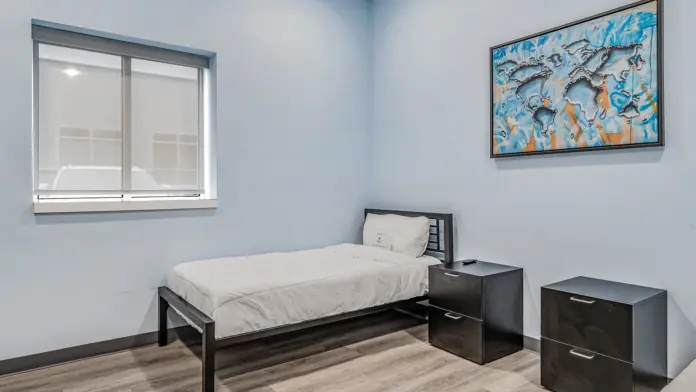
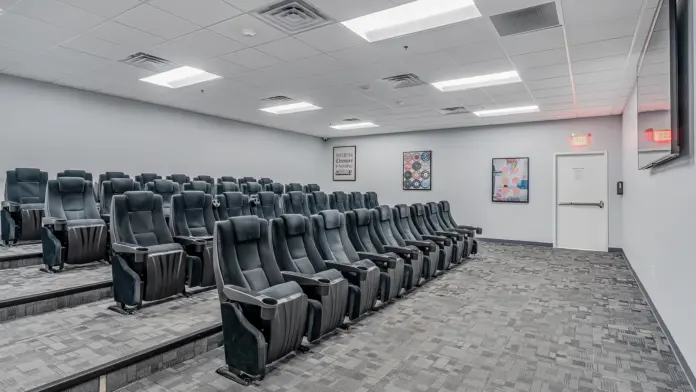
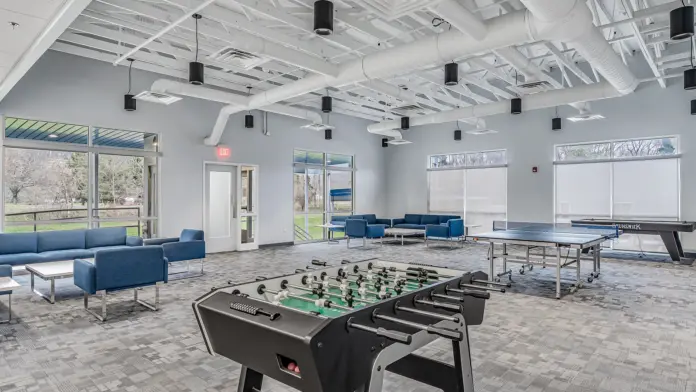
|
Kenosha, WI | DanaCare, located in Kenosha, Wisconsin is a alcohol and drug rehab that offers treatment for a variety of substance abuse addictions including opiate addiction and alcoholism. They offer flexible outpatient addiction therapy allowing patients to live at home while receiving regular treatment. | Treatments | Dana is amazing. She made me feel seen and heard. She helped me come up with a plan to reach my goals and kept me on track. I reached my goal in 3 months! Truly a blessing I found her.
Connie Burroughs
1 month ago
Dana care worked with my schedule to help me , instead of requiring me to show up several times a week like many other programs . My life has entirely turned around, the journey has changed , and im very thankful for you guys. Keep rocking it !
Autumn Serbedzija
2 months ago
She saved my life. Literally. Best place you could go to. She truly gives individualized care like NO OTHER!!! You will not find a better place.
T A
1 year ago
| ||
Kenosha, WI | Compassionate Care Counseling in Kenosha, Wisconsin offered outpatient substance use treatment for both young adults and adults. They’re closed now. Gender specific programs were available for men and women which helped create a more comfortable environment that encouraged sharing and addressed unique challenges that each gender may face during r | Treatments Programs Payment Options | Compassionate Care Counseling has no reviews yet. Leave a review.
| ||
Kenosha, WI | Outcasts Medical Center, located in Kenosha, Wisconsin is a private alcohol and drug rehab that offers treatment for a variety of substance abuse addictions including alcoholism, co-occurring mental health disorders, and opiate addiction. Specialty rehab programs at Outcasts Medical Center include tailored care focusing on women's specific needs | Treatments Programs | Outcasts Medical Center has no reviews yet. Leave a review.
| ||
Kenosha, WI | Psychiatric and Psychotherapy Clinic – Kenosha, Wisconsin is a place where you can receive support for addiction and mental health with dignity and respect. They treat both children and adults and make it possible for your whole family to receive help in one place. What we notice most about them is how they provide care for unique concerns th | Treatments Programs Payment Options | Psychiatric and Psychotherapy Clinic has no reviews yet. Leave a review.
| ||
Kenosha, WI | Genesis Behavioral Health - Kenosha in Kenosha, Wisconsin, is a mental health and drug rehab facility offering levels of care that include outpatient, residential and halfway house programs, as well as transitional living programs. Services are available for young adults, men, women and elderly individuals of all ethnicities and walks of life. Gene | Treatments Programs Payment Options | Genesis Behavioral Services Inc has no reviews yet. Leave a review.
| ||
Kenosha, WI | Allen Carr’s Easyway to Stop Smoking, located in Kenosha, Wisconsin is a alcohol and drug rehab that offers treatment for a variety of substance abuse addictions. They offer flexible outpatient addiction therapy allowing patients to live at home while receiving regular treatment. | Treatments Programs Payment Options | Allen Carr’s Easyway to Stop Smoking has no reviews yet. Leave a review.
| ||
Avenues Recovery Center at Fort WayneAd This is an ad and Avenues Recovery Center at Fort Wayne is a paid advertiser. Paid advertisers may be listed first in search results. This ad may contain content provided by the advertiser. Rehab.com does not verify ad content or any reviews that are displayed. Learn More Fort Wayne, IN | Situated in Fort Wayne, Indiana, Avenues Recovery Center is a modern, hotel-like addiction treatment facility. They offer a full continuum of care from inpatient detox, residential, medication-assisted treatment (MAT), outpatient and aftercare programs. They have a 95% long-term sobriety success rate. Residential treatment can begin with detox if n | Treatments Programs Payment Options | View Website (260) 235-5900 | Avenues Recovery Center at Fort Wayne has no reviews yet. Leave a review.
| 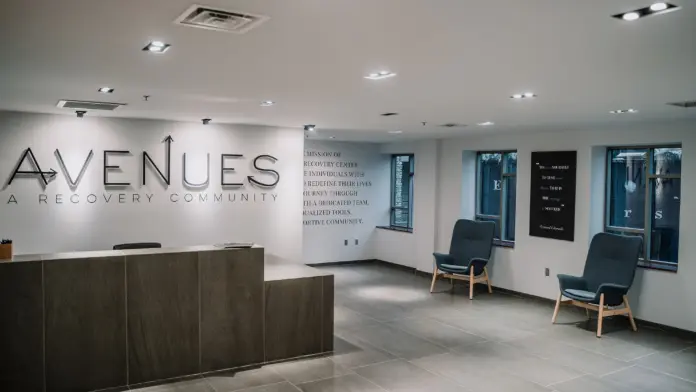
6 6 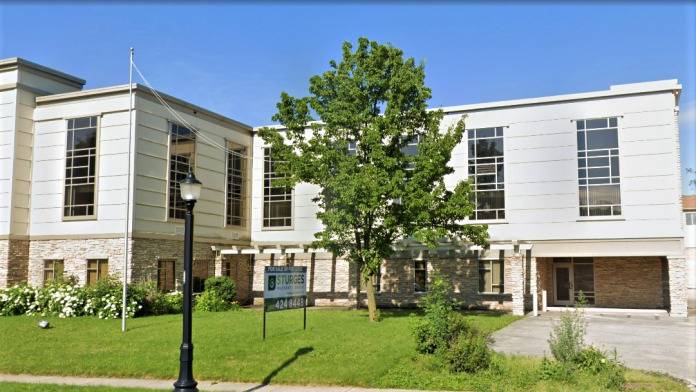
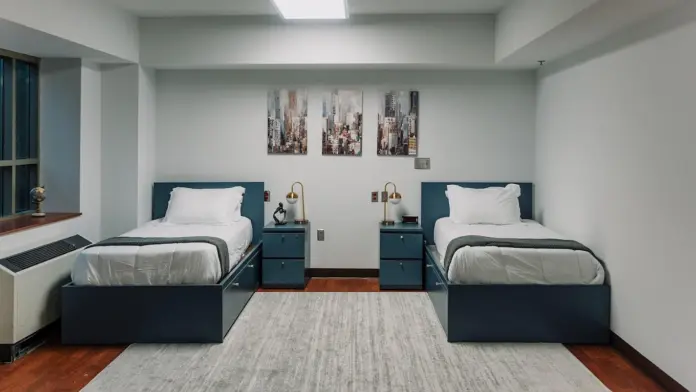

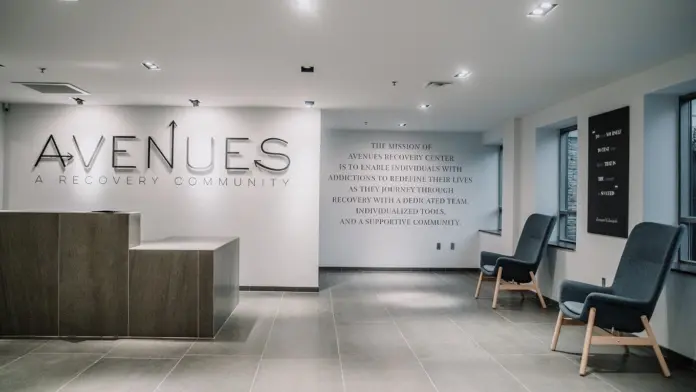
|
Fox Lake, IL | Western Lake Counseling and DUI Programs, located in Fox Lake, Illinois is a private alcohol and drug rehab that offers treatment for a variety of substance abuse addictions including alcoholism and opiate addiction. They offer flexible outpatient addiction therapy allowing patients to live at home while receiving regular treatment. Additional leve | Treatments Programs Payment Options | I've been back there a couple times and it's a really wonderful place they have the willingness to work with you and help you where you're at in life blessings!🫶🙏🌻
Lisa Fay
1 month ago
Mather's Recovery has been the best place I have been to concerning my OUD and other mental health diagnoses. I am a recovering IV heroin addict for 10 years. My sobriety began 8/5/2021. I was at several MAT clinics to be prescribed methadone that I ended up abusing alongside heroin to supplement my habit for those 10 years. I had a very rough decade as I am sure many of us have while using. I overdosed more times than I could count and was in and out of jail for drugs and theft. I finally got sick and tired of using especially when fentanyl hit the streets along with unknown substances being passed off as heroin. I began detoxing for 6 months to get off of methadone and switch to suboxone which I did albeit I went into PAWS for using fentanyl before my first strip. This was before Mather's at my PCP's office more than 50 miles away. My PCP was extremely cold, impatient and quick to invalidate my feelings and experiences. That's when my wife found Mather's Recovery in Fox Lake. From the moment I walked in I had felt seen. The front desk women are so incredibly kind! It also doesn't look like your typical "clinic " which feels really good. I don't have to worry about hearing people talk about using still or offering me their take homes/drugs. Lorin was assigned to me and she is hands down the most down to earth, genuine person I have ever met during this journey. She makes me feel seen, validated and treats me like an actual human being. I switched from Suboxone to Brixadi and it was the best thing I have done for my sobriety so far. The nurses are so funny and I always leave feeling like I just visited caring friends. Lorin also listened to my struggles with mental health and did not hesitate prescribing me medication that other doctors did not trust me with even though I was sober and those meds were so necessary for my continued stability. I did not have to feel like I had to keep my struggles a secret out of fear of looking like a drug seeker. I have also been struggling with my severe unmanaged ADHD that was proving to be a huge obstacle in my life. Lorin heard my story and changed my life. I have been able to manage my symptoms and get a grip on life which once proved to once be an impossible task. It changed the way my employers and coworkers treat me. Most importantly it saved my 15 year relationship with my wife. I was on the brink of a separation with her. Now she and I have been more understanding of each other and slowly growing closer again. This is my testimony of how Mather's Recovery helped me regain control of my life. I couldn't be more thankful for everyone there. I hope someone reads this and decides to give this wonderful place a chance.
Lonnie
Lonnie Smith
1 month ago
My visit was very pleasant
MP K
1 month ago
| 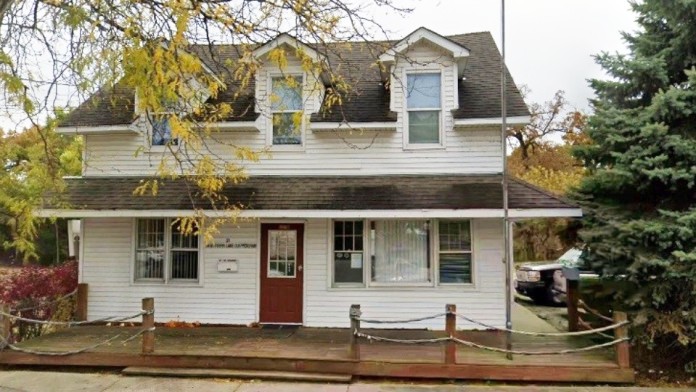
| |
Racine, WI | Ascension All Saints Hospital’s Wisconsin Avenue Campus in Racine provides behavioral health and addiction treatment services to adults. It’s near the public library and zoo and isn’t too far from the Wisconsin shoreline. Various commercial insurance plans are accepted, including Medicaid and Medicare, along with self-pay. Financial assistanc | Treatments Programs Payment Options | My nurse assistant and the doctor did a wonderful job answered all the questions I need to answer the time did a full exam
Lisa Holland
4 months ago
Staff were very helpful and courteous also competent.listened to me and helped me make informed decisions.
Keith Mcatee
5 months ago
Always amazing
jose tovar
5 months ago
| 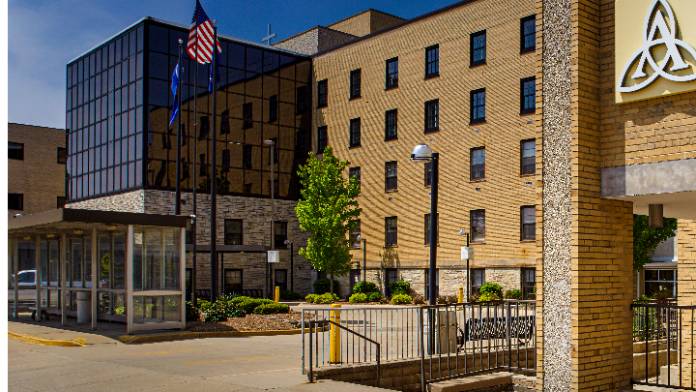
| |
Waukegan, IL | Bridge House is part of the nonprofit Nicasa Behavioral Health Services and is a coed residential halfway house for adults recovering from substance use dependency. This is a supportive living situation to help you with the transition from treatment to an independent sober lifestyle. They also have treatment for co occurring disorders. The house is | Treatments Programs Payment Options | Entered Bridge House in January of 2000 and stayed 5 months. Bridge House staff were great. They introduced me to the tools to stay sober and I've never picked up a drink since. Over 25 years sober now! Thank you for that.
Jim Scott
5 months ago
Nicasa is a very place to be if you are respectful to and of staff. I would rate this facility 5 stars giving my said experience. Julian Buford
MR None of Googles creepy ass business
9 months ago
Stayed there 2 years ago. Great staff,and facility. Stayed sober 2 years. Till my next relapse. No reflection on them .
Timothy Love
2 years ago
| 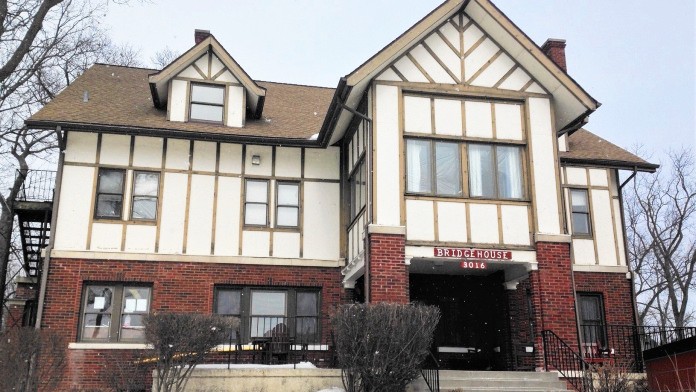
3 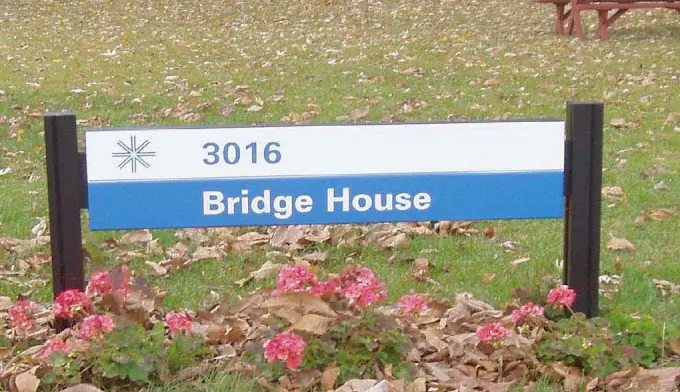
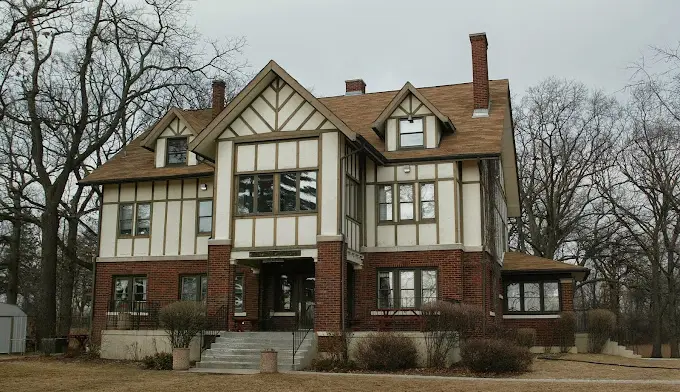
| |
Waukegan, IL | Independence Center is a behavioral health and substance abuse recovery facility in Waukegan, Illinois. The Center provides mental health, substance abuse treatment, and treatment for co-occurring disorders in an outpatient setting. Outpatient Independence Center provides individual and group counseling to address mental illness and substance abuse | Treatments Programs Payment Options | Very caring people also help with any needs♥️🙏
Jose Lopez
6 months ago
Professional People
Corey Knox
1 year ago
| 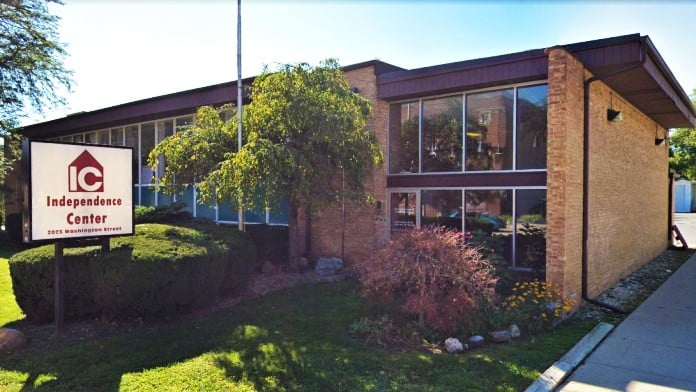
2 
| |
Waukegan, IL | Lake County Behavioral Health–Addictions Treatment Program (ATP) is a 12 step-focused drug and alcohol rehab for adults in Waukegan, Illinois. They offer dual diagnosis care, medically supervised detox, intensive inpatient treatment, and aftercare support, including specialized programming for young adults, persons with hearing impairment, pregna | Treatments Programs Payment Options | This place saved my life! If it weren’t for the wonderful counselors and staff, I wouldn’t be where I am today!
Erin Hyser
5 months ago
This place has saved my life many times. I will always pay it forward by coming back to support the patients
Angelina Berta
10 months ago
Idk why the rating is so low. They actually care and want to help. They will do their utmost to help you get on your feet. Theresa, Ray, Darryl, David, and everyone else there is so compassionate and Nice. Idk what they get paid but it’s not enough; frfr.
Sid Qureshi
1 year ago
| 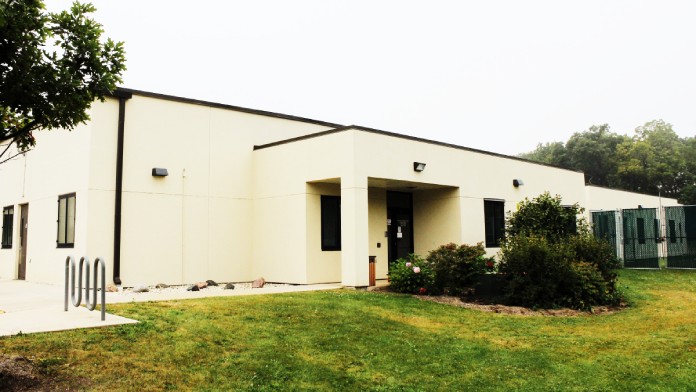
| |
Waterford, WI | Aurora Health Center is a nonprofit healthcare organization providing integrated healthcare for patients throughout eastern Wisconsin and northern Illinois. They have multiple convenient locations, including this facility in Waterford, Wisconsin. This location is an outpatient clinic open from 8:00 a.m. to 5:00 p.m. and includes urgent care. For cl | Treatments Programs Payment Options | Everyone here is always friendly and helpful.
Tim Olson
1 year ago
I love this place! All the doctors and nurses are professional and helpful. It's very peaceful and everyone answers my questions and helps me get the best care for my children, myself, and my brother.
Laura Bonack
3 years ago
Went in to the urgent care side about a month ago for a broken toe. Receptionist was great when checking in, and it was super quiet. Felt like the only person there! Didn't wait more than two minutes to get called back. Nurse was nice and helpful, x-ray lady was nice too! The urgent care doctor seemed like he was in a rush, and didn't explain anything besides the fact that my toe was broken, which sucks. Overall great experience! I am one who avoids doctors offices as Functional medicine is far more helpful. But when it comes to a broken bone, urgent care it is.
Mary Peloza
4 years ago
| 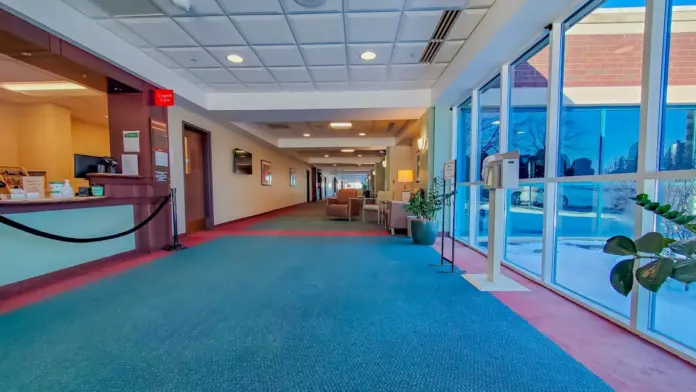
2 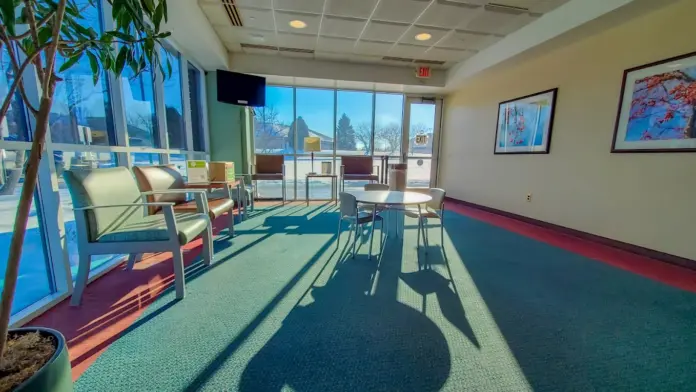
| |
Avenues Recovery Center at IndianapolisAd This is an ad and Avenues Recovery Center at Indianapolis is a paid advertiser. Paid advertisers may be listed first in search results. This ad may contain content provided by the advertiser. Rehab.com does not verify ad content or any reviews that are displayed. Learn More Indianapolis, IN | Avenues Recovery Center at Indianapolis is a 144 – bed detox and residential rehab facility offering drug and alcohol addiction treatment. Located in the heart of Indianapolis, Avenues offers an evidence-based clinical program, comprehensive medical care, and custom MAT options – consistently yielding highly effective results. Its multidisc | Treatments Programs Payment Options | View Website (463) 221-4959 | Avenues Recovery Center at Indianapolis has no reviews yet. Leave a review.
| 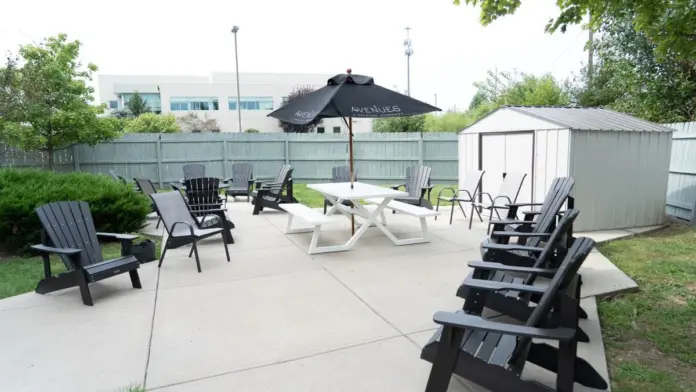
6 6 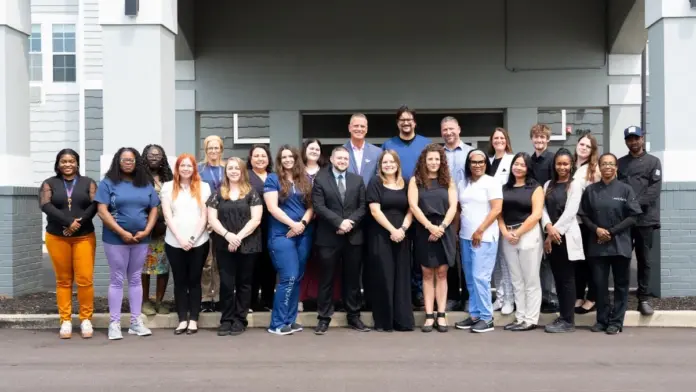
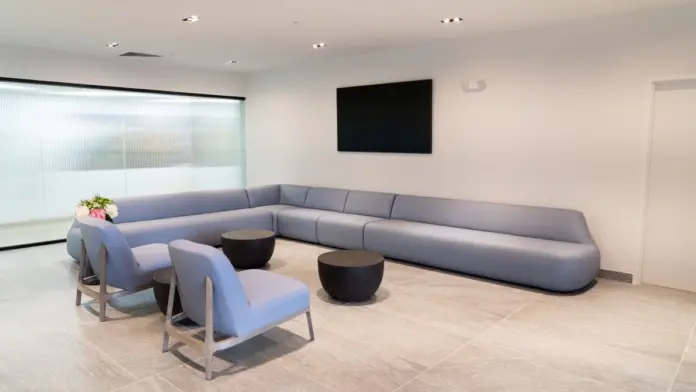
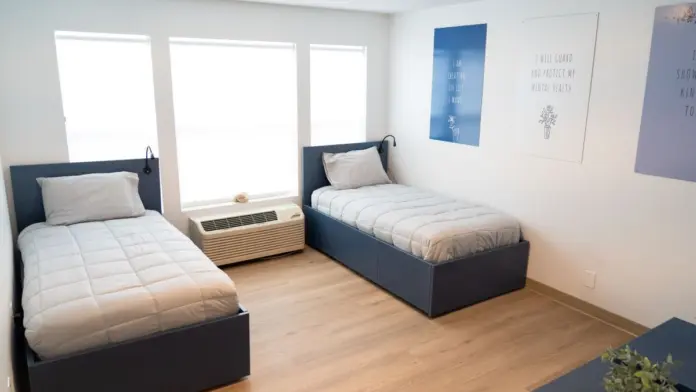
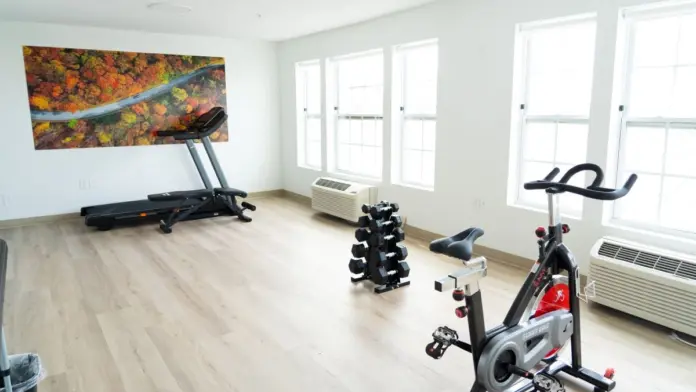
|
Gurnee, IL | Weckler and Associates, located in Gurnee, Illinois is a private alcohol and drug rehab that offers treatment for a variety of substance abuse addictions including alcoholism and opiate addiction. They offer flexible outpatient addiction therapy allowing patients to live at home while receiving regular treatment. Additional levels of care offered i | Treatments Programs Payment Options | Best prices. No hidden fees. My lawyer recommended them. Rob, Mike, and Dan were all helpful! I got my license back!
Seren of the Nameless
3 years ago
I’m going to start by thanking you for listening to me, for making the effort to understand me, and for being always kind. Your warm and welcoming environment made me feel safe and comfortable when talking about my history and personal life. Thank you for making therapy worth it for my life. You rock.
7 years ago
I’m going to start off by saying Rob is a very understanding and good guy. Right after meeting him, I was comfortable talking to him about my situation, history, personal life, etcetera. He always seemed happy to see me, and happy to see me doing well and staying out of trouble. During our sessions he was relatable and made the sessions worth my time, not only the present, but for the future as well. I wouldn’t have wanted to go anywhere else for counseling after seeing him.
Alex Casebolt
7 years ago
| 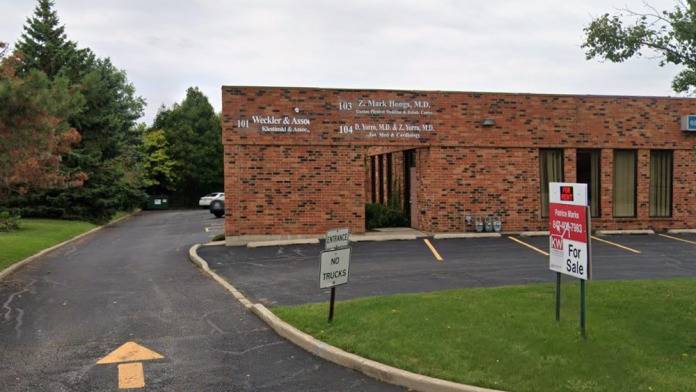
| |
North Chicago, IL | Lake County Health Department – North Chicago Health Center is located in North Chicago, Illinois. This is a county provider of behavioral health services and treatment for substance use disorders. Their North Chicago Health Center offers services in an outpatient setting. Private and public insurance policies are accepted. Clinically Based Addic | Treatments Programs Payment Options | I love it here they are very nice to my kids it’s quick and DR LUCA IS AMAZING AND STAFF IS AWESOME 👏
Theresa Rodriguez
3 years ago
Clean place and the staff is kind and helpful.
Jose Guerra
4 years ago
I was able to see my new APN, get the help I needed; the staff was nice I can’t complain. Will come up Back again.
Itsjustlittlebit
4 years ago
| 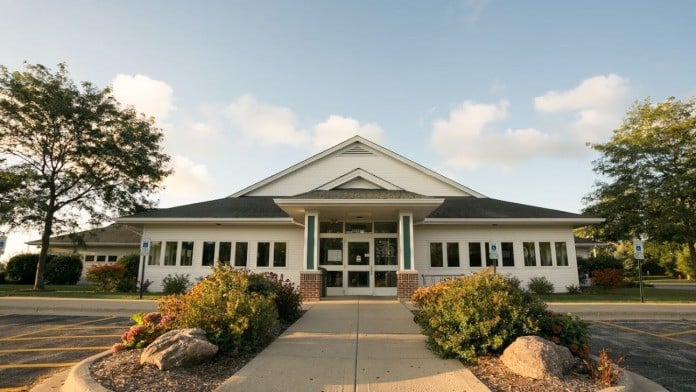
3 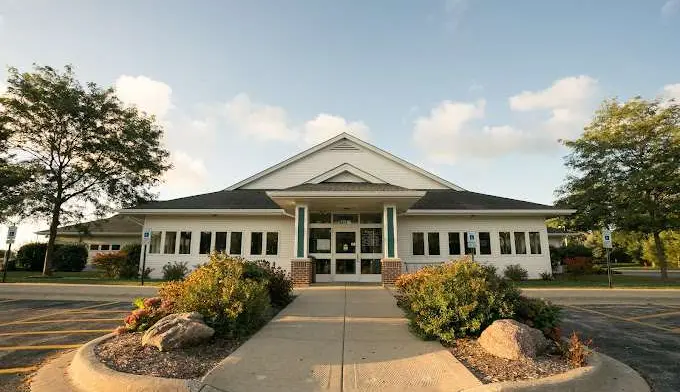
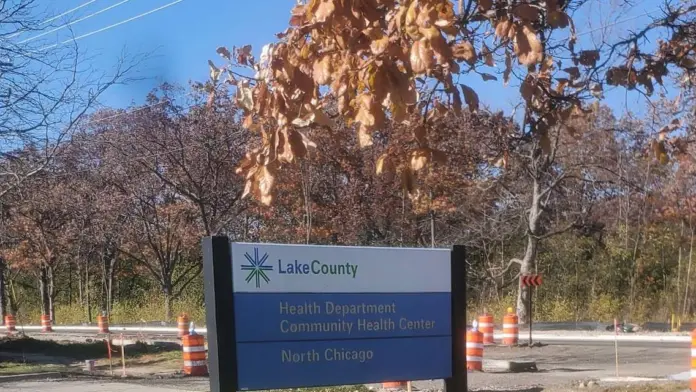
| |
Salem, WI | For over 30 years, Oakwood Clinical Associates has been helping individuals in Salem, Wisconsin, identify and pursue their goals through various treatment pathways, including substance abuse treatment. At this center, individuals can expect professionally trained counselors and staff who are experienced in their specialties. The primary service off | Treatments Programs Payment Options | Oakwood Clinical Associates has helped me a lot, the Doctors and therapists are wonderful. I highly recommend them to anyone with addictive and or mental issues. They are very caring. Thank you United for saving my life!
6 years ago
| 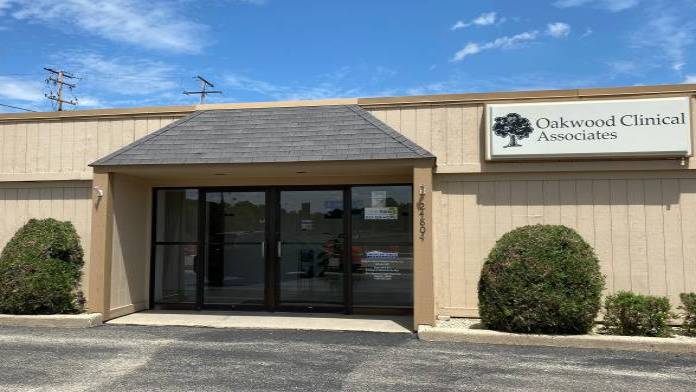
| |
Burlington, WI | Aurora Behavioral Health Center in Burlington, Wisconsin is a 24-hour outpatient clinic that provides services to people of all ages including families and couples. This facility is located in Burlington, Wisconsin in a commercial block called Fox River Station. You’ll find Aurora in a single-story building that also houses other commercial and m | Treatments Programs Payment Options | Dr K has been very helpful to me and the therapist I see has also been helping me with personal issues, I highly recommend them to help you!
Kevin Shaw
1 year ago
Doctor k has been one of my favorite doctors to work with. He always nice and in a good mood. Very professional anf works with your needs. Would highly recommend. The only issue is I do have a service dog and he is afraid of dogs so i leave my dog home when i visit him.
Angelina Gutierrez
5 years ago
Dr. K is awesome.
Big Sauce
6 years ago
| 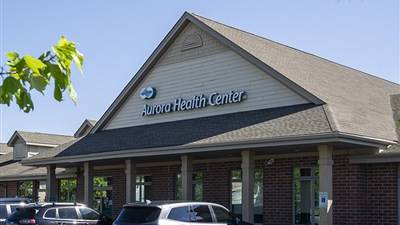
|

Kenosha is the 214th most expensive city nationwide for addiction treatment affordability, with an average cost of addiction treatment of $55392. This is comparable to the average cost of $56625 for addiction treatment in Wisconsin and comparable to the national average cost for drug rehab of $57,193.
The costs of drug and alcohol rehab in Kenosha vary widely and depend on several factors, including:
The costs of addiction treatment listed for cities and states are averages based on the cost of medical detox, inpatient rehab, outpatient rehab, and medication assisted treatment. These averages are high due to the cost of medical detoxification and residential inpatient rehab programs.
These numbers also reflect the raw cost of drug rehab, before any insurance coverage. The typical individual seeking addiction treatment can expect to pay much less for outpatient or intensive outpatient services than the averages listed below.There are many ways to pay for drug rehab in Kenosha. Most rehab treatment centers accept cash or self-payment, as well as private health insurance. However, there are many treatment centers in Kenosha that accept Medicaid and Medicare, or offer sliding scale payments or other low-cost payment options. Here's the complete breakdown of how to pay for addiction treatment near Kenosha.
Aetna is the most widely-accepted insurance for drug rehabs in Kenosha, with 4 treatment centers in the city accepting their insurance. UnitedHealth Group is the 2nd most popular with 4 treatment centers accepting it followed by Cigna in 3rd accepted by 3 drug rehabs.
Kenosha has the 35th highest rate of drug use nationwide among nearly 400 cities surveyed. This number reflects the combined use of cocaine, heroin, meth, and marijuana, displayed individually below. The percent shown for each drug represents the number of residents in Kenosha county that have reported ever using the following drugs, so these numbers should not be interpreted as direct evidence of current drug use in Kenosha or Kenosha county as a whole.
In 2023, Kenosha had the 121st highest number narcotics violations out of 330 cities nationwide, with a total of 596 reported drug-related incidents that year. This includes cases of public intoxication, drug arrests, narcotics found during house calls and traffic stops, and any other drug-related crime.
Keep in mind these numbers are dependent on accurate record keeping and reporting laws by local police and sheriffs, and may not fully reflect all drug related crime in Kenosha.All values are per 100,000 population.
Source: https://cde.ucr.cjis.gov/LATEST/webapp/#/pages/explorer/crime/crime-trend